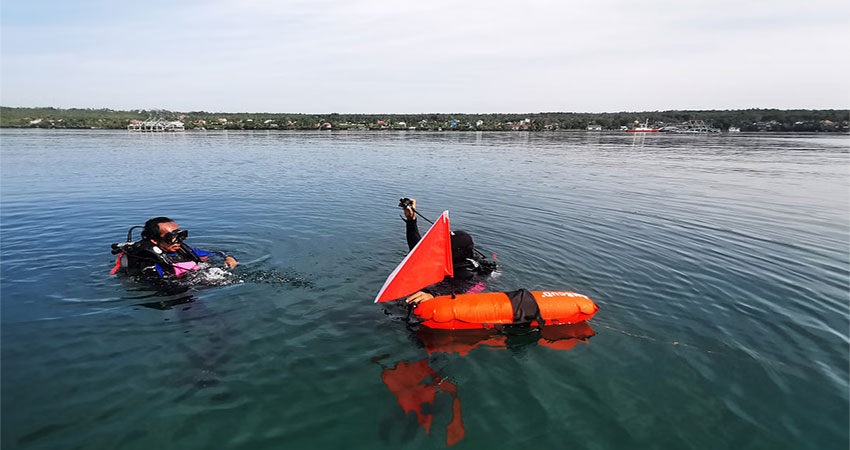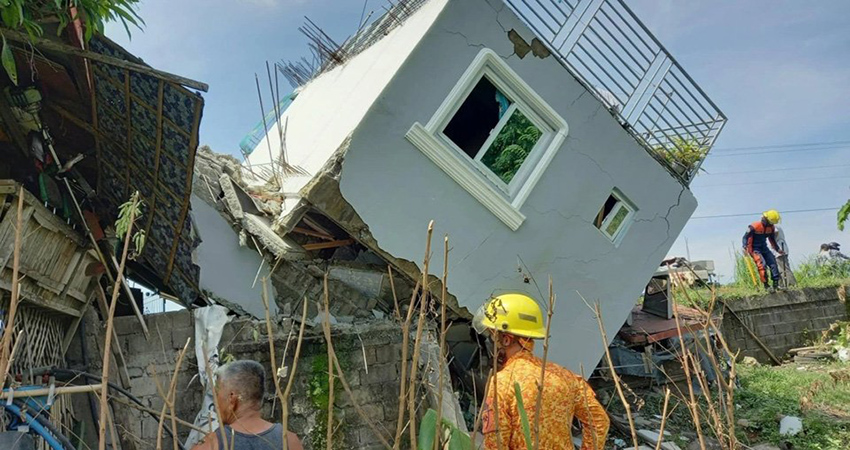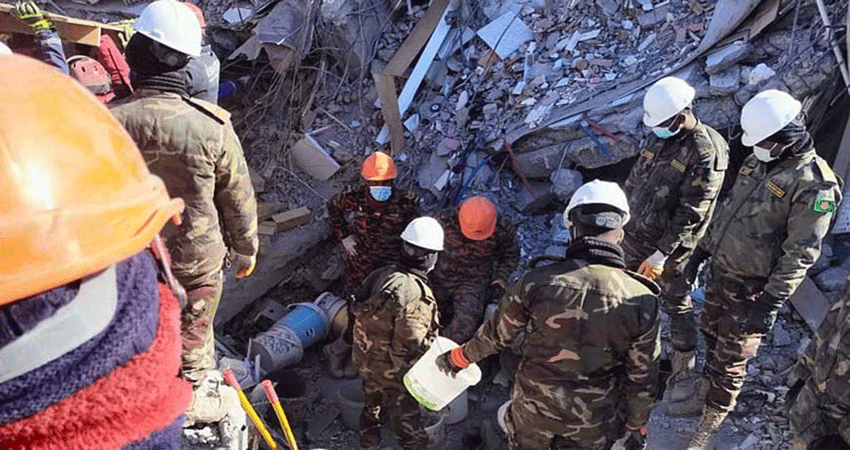An earthquake of magnitude 6.1 killed 950 people in Afghanistan early on Wednesday, disaster management officials said, with more than 600 injured and the toll expected to grow as information trickles in from remote mountain villages.
Photographs on Afghan media showed houses reduced to rubble, with bodies swathed in blankets lying on the ground, reports Reuters.
Helicopters were deployed in the rescue effort to reach the injured and fly in medical supplies and food, said interior ministry official Salahuddin Ayubi.
"The death toll is likely to rise as some of the villages are in remote areas in the mountains and it will take some time to collect details."
The Afghan news agency Bakhtar posted video footage on Twitter of a helicopter landing in what it said was a quake-hit area. It said that ambulances were transporting the injured to hospitals.
The United States Geological Survey (USGS) said the magnitude of the earthquake in the early hours of Wednesday was 5.9, revising an initial estimate at 6.1. The epicentre of the tremor was about 46km (27 miles) from the city of Khost, near the Pakistani border. (Click for Video)
Most of the confirmed deaths were in the eastern province of Paktika, where 255 people were killed and more than 200 injured, Ayubi added. In the province of Khost, 25 were dead and 90 had been taken to hospital.
Haibatullah Akhundzada, the supreme leader of the ruling Taliban, offered his condolences in a statement.
Mounting a rescue operation could prove a major test for the Taliban, who took over the country in August and have been cut off from much international assistance because of sanctions.
Shaking was felt by about 119 million people in Pakistan, Afghanistan and India, the EMSC said on Twitter, but there were no immediate reports of damage or casualties in Pakistan.
Afghan journalist Ali M Latifi, reporting from Kabul, said people as far as the Afghan capital, some 200km (124 miles) away, felt the aftershocks.
Authorities are reporting hundreds of houses have been destroyed in the region, which has not seen a lot of development, Latifi said.
“Authorities have sent helicopters and are calling for aid agencies to come in and rescue people from the rubble. But it’s a remote area and harder to reach,” he added.
“The biggest issue is how to reach the sites because they are further away from the provincial capitals, and the road conditions could be difficult. So really the issue is how long it’s going to take them to get there,” the Afghan journalist said.
Adding to the challenge for Afghan authorities is recent flooding in many regions, which the disaster agency said had killed 11, injured 50 and blocked stretches of highway.
The disaster comes as Afghanistan grapples with a severe economic crisis since the Taliban took over, as US-led international forces withdrew following two decades of war.
In response to the Taliban takeover, many nations imposed sanctions on Afghanistan's banking sector and cut billions of dollars worth of development aid.
Humanitarian aid has continued, however, with international agencies, such as the United Nations, operating.
The U.N.'s office for the Coordination of Humanitarian Affairs (UNOCHA) said Afghanistan had asked humanitarian agencies to help with rescue efforts, and teams were being dispatched to the quake-hit area.
A spokesman of Afghanistan's foreign ministry said it would welcome international help. Neighbouring Pakistan said it was working to extend assistance.
The Pakistan Meteorological Department said the quake jolted parts of the Punjab and Khyber Pakhtunkhwa provinces, according to the Dawn news website, which added that there was no immediate news of deaths or damage.
Some remote areas of Pakistan saw reports of damage to homes near the Afghan border, but it was not immediately clear if that was due to the earthquake, said Taimoor Khan, a disaster management spokesperson in the area.
Large parts of South Asia are seismically active because a tectonic plate known as the Indian plate is pushing north into the Eurasian plate.
In 2015, an earthquake struck the remote Afghan northeast, killing several hundred people in Afghanistan and nearby northern Pakistan.
In January, an earthquake struck western Afghanistan, killing more than 20 people.



















